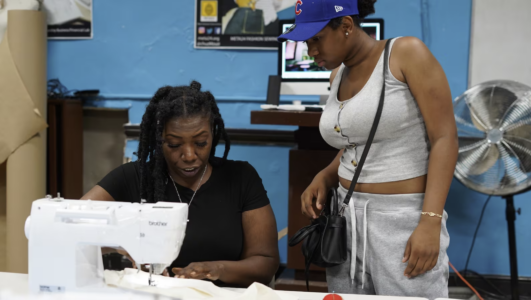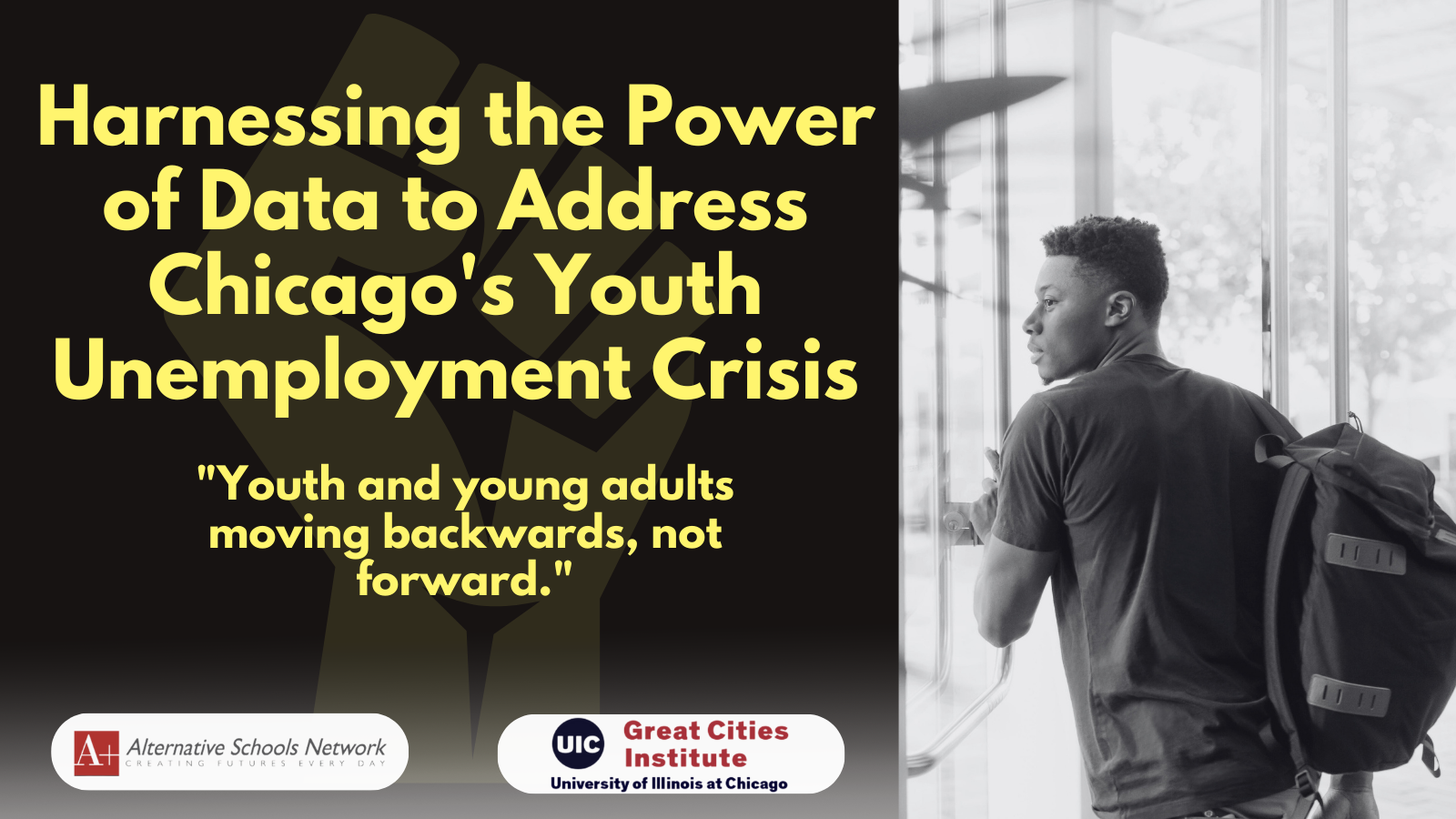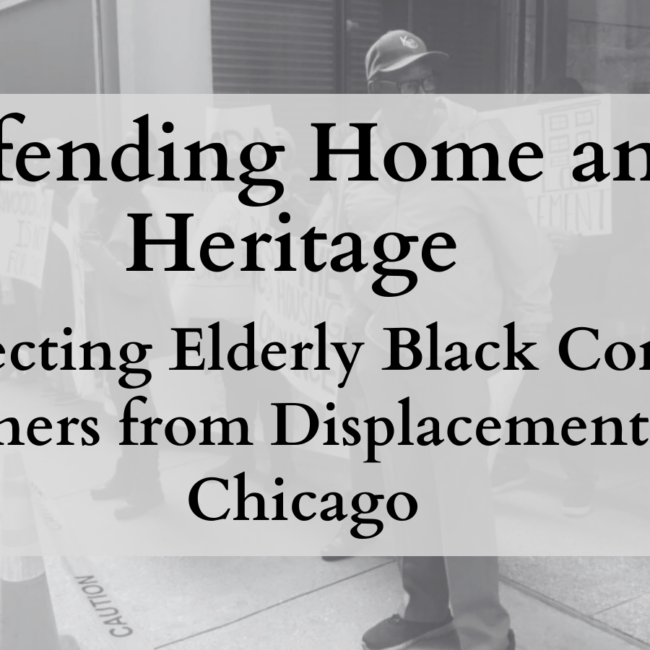Harnessing the Power of Data to Address Chicago’s Youth Unemployment Crisis
Chicago is facing a troubling crisis of youth unemployment, particularly among Black youth, as highlighted by a study commissioned by Thinkinc. client, Alternative Schools Network (ASN), and conducted by another client, the University of Illinois at Chicago Great Cities Institute.
The report Lost: The Crisis Of Jobless and Out Of School Teens and Young Adults In Chicago, Illinois and the U.S. reveals a staggering increase in joblessness among young Black individuals, especially young Black women, during the COVID-19 pandemic. These alarming statistics have prompted youth advocates, led by ASN, to urge policymakers and stakeholders to invest in comprehensive job programs that can provide meaningful employment opportunities for Chicago’s youth.

Several years ago, Thinkinc. facilitated a collaboration between the Alternative Schools Network (ASN) and the UIC Great Cities Institute. Over the years the two organizations have commissioned and conducted several research and data analysis to shed light on the growing trend of joblessness and data on out-of-school youth in Chicago, Illinois and the nation.
To maximize the impact of the resulting Out of School and Jobless Report, Thinkinc. organized a news conference under the theme of “Youth and Young Adults Moving Backwards Not Forward.” This event served as a platform for releasing the report. Speakers from ASN, including young individuals affected by joblessness, shared their personal experiences, emphasizing the urgent need for employment opportunities and lending credibility to the report’s findings.
Through targeted efforts, comprehensive articles were featured in news outlets such as Block Club Chicago, Chalkbeat Chicago, and Chicago Tribune. These articles highlighted the report’s findings and stressed the critical importance of major investments in youth employment programs. The strategic placement of these articles ensured that the message reached a wide audience, including policymakers, stakeholders and concerned citizens, generating widespread awareness and potential state revenue.






